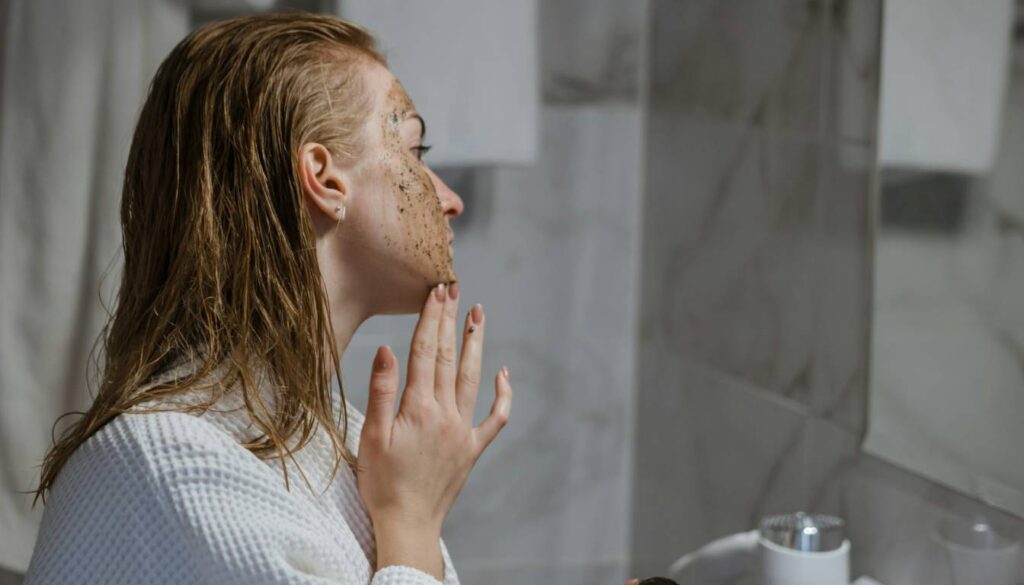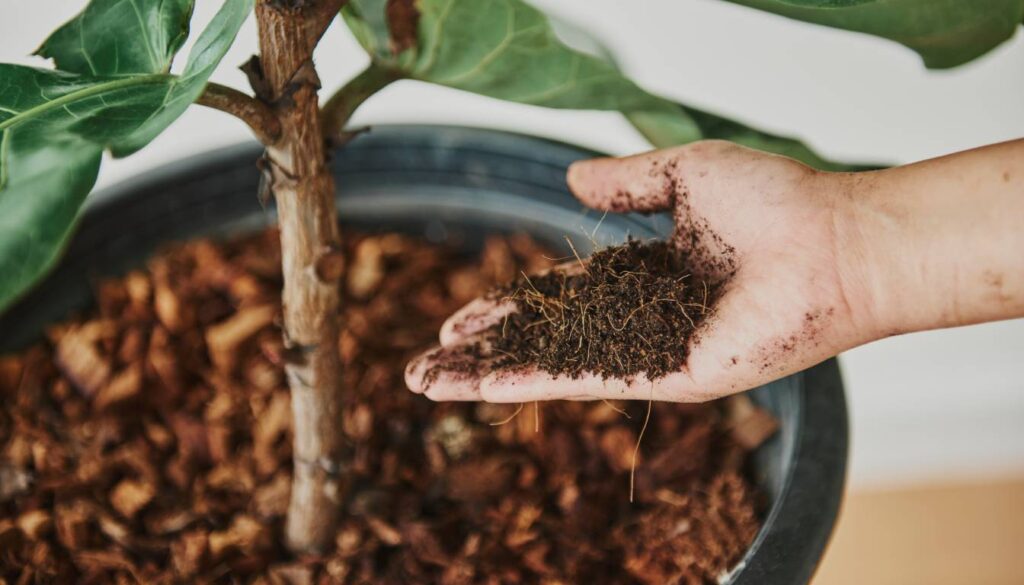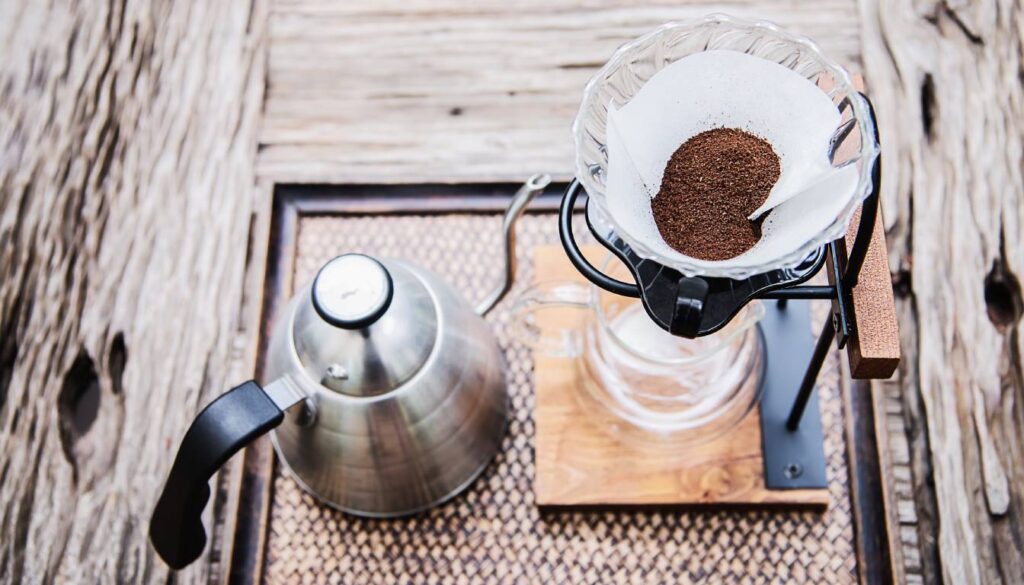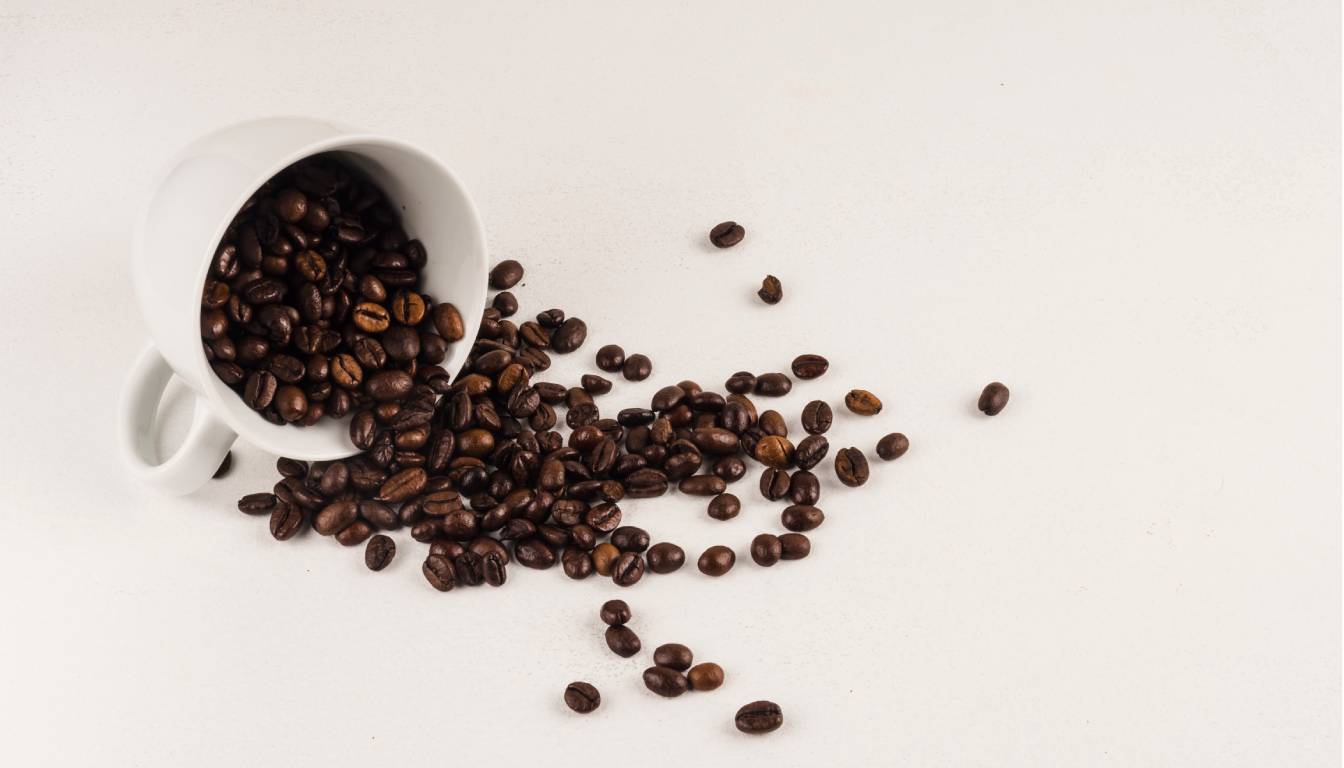Coffee is one of the most widely enjoyed beverages around the world, with millions of people drinking it every day. What many don’t realize is that coffee beans can be used for much more than just making a cup of coffee. As a coffee enthusiast, I’ve come across several creative uses for coffee beans that I’m excited to share.
One of the most interesting uses for coffee beans is as a natural fertilizer for plants. Coffee grounds contain nitrogen, phosphorus, and potassium, which are essential nutrients for plant growth. They also help to improve soil quality and prevent pests and diseases. So, instead of throwing away your used coffee grounds, consider adding them to your garden or compost pile.
Another great use for coffee beans is in cooking and baking. Ground coffee can add a rich flavor to desserts, such as cakes, cookies, and brownies. Coffee can also be used as a rub for meat, adding a smoky and savory flavor. And for those who love to experiment in the kitchen, there are plenty of coffee-infused recipes to try, such as coffee-rubbed steak or coffee-infused cocktails.
Creative Uses for Old Coffee Beans
As a coffee lover, I always have unused coffee beans lying around, and I hate to throw them away. Fortunately, there are many creative uses for old coffee beans that can be both practical and fun. Here are a few ideas:
Fertilizer for Plants
Old coffee beans are rich in nitrogen, which makes them a great fertilizer for plants. Camellias, hydrangeas, and roses love coffee grounds because of their nitrogen content. You can sprinkle old coffee grounds around the base of your plants to help them grow and thrive.
Compost Material
Coffee grounds are also a great addition to your compost pile. They add nitrogen and phosphorus to the soil, which helps your plants grow. Coffee grounds can also attract worms to your compost pile, which can help break down the organic matter and create nutrient-rich soil.
Coffee-Based Desserts
If you have a sweet tooth, you can use old coffee beans to make delicious desserts. Chocolate-covered espresso beans are a classic treat, but you can also use coffee beans to flavor ice cream or make cold brew coffee.
Coffee Ice Cubes for Drinks
If you want to add a little kick to your iced coffee or iced tea, you can make coffee ice cubes. Simply brew a pot of coffee, let it cool, and pour it into an ice cube tray. Once frozen, you can use the coffee ice cubes to chill your drinks without watering them down.
Natural Odor Neutralizer
Old coffee beans can also be used to neutralize odors in your home. You can place a bowl of unused coffee grounds in your refrigerator to absorb unwanted smells or sprinkle them in the bottom of your trash can to keep it smelling fresh. You can also place a small bag of coffee beans in your car to eliminate odors.
Insect Repellent
If you have a problem with pests like fleas, mosquitoes, slugs, or snails, you can use old coffee beans to repel them. Simply sprinkle coffee grounds around the perimeter of your garden or on your patio to keep the bugs away.
Art Projects
Finally, if you’re feeling creative, you can use old coffee beans to make art. Coffee grounds can be mixed with paint to create a textured effect, or you can glue coffee beans onto a canvas to create a unique piece of artwork. The possibilities are endless!
Old coffee beans have many uses beyond just making coffee. Whether you’re looking to fertilize your plants, make a delicious dessert, or create a work of art, old coffee beans can be a valuable resource. So next time you’re about to throw away your unused coffee beans, think about how you can repurpose them instead.
Can You Use Coffee Beans For Espresso?
As a coffee lover, I am often asked whether coffee beans can be used for making espresso. The answer is yes, but there are a few things to keep in mind.
Espresso requires a specific grind size, brewing temperature, and pressure to create the perfect shot. While any coffee bean can be used with any brewing device, the quality of the espresso will depend on the type of coffee bean you use.
If you’re looking to make a great espresso, it’s best to use coffee beans that are specifically roasted for espresso. These beans are typically roasted darker and have a more robust flavor profile that can stand up to the intense brewing process.
That being said, if you don’t have access to espresso beans, you can still use regular coffee beans to make espresso. Just make sure to grind the beans finely and use a higher brewing pressure to compensate for the coarser grind.
In summary, while espresso beans are preferred for making espresso, regular coffee beans can be used as well. Just keep in mind that the quality of the espresso will depend on the type of coffee bean you use and the brewing process you follow.
Practical Uses for Old Coffee Beans

Cooking Ingredient
Old coffee beans can be repurposed into a versatile cooking ingredient. They can be used to add depth of flavor to chilli and dry rubs for steak and chicken. Simply grind the old coffee beans into a fine powder and mix them with your favorite spices. The coffee grounds will also work as a meat tenderizer when marinated with meat.
Dishwasher Cleaner
Old coffee beans can also be used to clean your dishwasher. Simply put the old coffee beans in a dishwasher-safe container and place it on the top rack of your dishwasher. Run the dishwasher on a hot water cycle, and the coffee grounds will help to remove any lingering odors.
Home Decor
Old coffee beans can be used as a natural brown dye for fabric or wooden furniture. Steep the old coffee beans in hot water, and then use the resulting liquid to stain fabric or wood. The coffee grounds can also be used as a rustic-looking filler for vases or candle holders.
Skin Exfoliant
Old coffee grounds are a natural exfoliant that can help remove dead skin cells and improve blood circulation. Mix coffee grounds with a little coconut oil to make a scrub. Use it on your face and body for a refreshing, spa-like experience at home.
Natural Brown Dye
As mentioned earlier, old coffee beans can be used as a natural brown dye for fabric or wooden furniture. The coffee grounds can also be used to dye clothes or as a hair dye.
In addition to the practical uses listed above, old coffee beans are also rich in antioxidants and collagen, making them a great addition to your skincare routine. Overall, repurposing old coffee beans is a great way to reduce waste and get creative with your household items.
What Can You Use Coffee Grounds For?
As a coffee lover, I know that coffee beans are not just for making coffee. There are many creative ways to use coffee grounds that can benefit your home, garden, and even your beauty routine. Here are some of my favorite uses for coffee grounds:
1. Fertilizer
Coffee grounds are rich in nitrogen, which makes them a great fertilizer for plants. You can add coffee grounds to your compost pile or directly to the soil around your plants. Coffee grounds are especially beneficial for acid-loving plants like roses, hydrangeas, and blueberries.
2. Pest Control
Coffee grounds can also be used as a natural pest repellent. Sprinkle coffee grounds around the base of plants to repel slugs, snails, and ants. You can also mix coffee grounds with water to create a natural insecticide spray.
3. Exfoliator
Coffee grounds can be used as a natural exfoliator for your skin. The texture of coffee grounds helps to remove dead skin cells and leave your skin feeling soft and smooth. Mix coffee grounds with coconut oil or honey to create a DIY exfoliating scrub.
4. Odor Absorber
Coffee grounds are great at absorbing odors, which makes them perfect for use in the refrigerator or freezer. Simply place a bowl of coffee grounds in your refrigerator or freezer to absorb any unwanted smells.
5. Cleaning Agent
Coffee grounds can also be used as a natural cleaning agent. The abrasive texture of coffee grounds makes them great for scrubbing pots, pans, and even your grill. Mix coffee grounds with dish soap to create a DIY cleaning paste.
Overall, coffee grounds are a versatile and useful resource that can be used in many different ways. From fertilizing your plants to cleaning your kitchen, coffee grounds are a great addition to any home.
How to Reduce Coffee Waste

As a coffee lover, I always try to find ways to reduce coffee waste and reuse coffee grounds. Here are some of the methods I use to reduce coffee waste:
Trying New Brewing Methods
One way to reduce coffee waste is to try new brewing methods that use different amounts of coffee beans. For example, espresso machines use less coffee than drip coffee makers, and specialty coffee shops often use precise measurements to make the perfect cup of coffee. By experimenting with new brewing methods, you can find the perfect balance between taste and waste.
Creating Your Coffee Blend
Another way to reduce coffee waste is to create your coffee blend. By mixing stale coffee beans with fresh ones, you can create a unique flavor profile that is both sustainable and delicious. Plus, roasting your coffee beans is a fun and rewarding experience that allows you to control the quality and freshness of your coffee.
Using Coffee Grounds for Fertilizer and Compost
Coffee grounds are a great source of nitrogen, which makes them an excellent fertilizer for plants. By adding coffee grounds to your compost, you can improve soil quality and help your plants grow. Plus, coffee grounds can also be used to repel pests and control weeds, making them a versatile and eco-friendly gardening tool.
Natural Cleaning and Beauty Uses for Grounds
Coffee grounds can also be used for natural cleaning and beauty purposes. For example, coffee grounds can be used to clean copper and steel wool, and they can also be used to make soap and candles. Additionally, coffee grounds can be used to make a DIY coffee scrub that exfoliates and moisturizes the skin, making it a great addition to any beauty routine.
Reducing coffee waste is not only good for the environment, but it can also lead to new and exciting ways to enjoy coffee. By trying new brewing methods, creating your coffee blend, using coffee grounds for fertilizer and compost, and exploring natural cleaning and beauty uses for grounds, you can reduce waste and enjoy all the benefits of coffee.
Can You Use Espresso Beans For Drip Coffee?
As a coffee lover, I often get asked if it’s possible to use espresso beans for drip coffee. The short answer is yes, you can use espresso beans to make drip coffee, but there are some things you need to keep in mind.
First, it’s important to note that espresso beans are roasted differently than regular coffee beans. They are roasted for a longer time, which gives them a darker color and a more intense flavor. This means that if you use espresso beans for drip coffee, you’ll get a stronger, bolder flavor than you would with regular coffee beans.
Second, you need to grind the espresso beans properly for drip coffee. Espresso beans are ground finer than regular coffee beans, so you’ll need to adjust your grinder accordingly. If the grind is too fine, it can clog your coffee maker and ruin the taste of your coffee. On the other hand, if the grind is too coarse, the coffee will be weak and watery.
Third, you need to use the right equipment. Espresso machines are designed to force hot water through finely ground espresso beans, while drip coffee makers are designed to drip hot water through coarser coffee grounds. If you try to use espresso beans in a drip coffee maker, you may not get the best results.
While you can use espresso beans for drip coffee, it’s important to keep in mind that they are roasted differently, need to be ground properly, and may not work well with all coffee makers. If you want to try using espresso beans for drip coffee, make sure you have the right equipment and adjust your grind accordingly.
Before You Go – Uses for Coffee Beans?

Throughout this article, I have shared various creative uses for coffee beans beyond just brewing a delicious cup of coffee. From repurposing old coffee beans to using them as a natural abrasive for cleaning, coffee beans have proven to be a versatile ingredient with many benefits.
Moreover, incorporating sustainable practices into our daily lives is becoming increasingly important. By using coffee grounds as compost or fertilizer, we can reduce waste and contribute to a greener environment. Additionally, buying coffee beans from sustainable sources can support farmers and promote ethical practices in the coffee industry.
Lastly, coffee has been shown to have positive effects on focus and productivity. Incorporating coffee breaks into our workday can help us recharge and stay focused. However, it is important to remember to consume coffee in moderation and avoid overconsumption.
Coffee beans have many uses beyond just making a cup of coffee. By incorporating sustainable practices and mindful consumption, we can enjoy the benefits of coffee while also promoting a healthier environment and lifestyle.
Coffee Chronicles: Uses for Coffee Beans and TheHerbProf
Let’s delve into the world of coffee beans and explore how they connect to our herbal home, theherbprof.com.
First off, coffee beans are a marvel! They’re packed with aromatic goodness, offering a unique experience while promoting health. Now, isn’t that something we all love at theherbprof.com?
But wait, there’s more! By sharing uses for coffee beans, we’re showing our commitment to exploring and promoting herbal wisdom. It’s like saying, “Hey, want to learn more about herbs? Come join us at theherbprof.com!”
So, in a nutshell, coffee beans and theherbprof.com are like two peas in a pod. They both celebrate the magic of herbs and together, they can help us lead healthier, happier lives. Now, that’s what I call a win-win!
Remember, folks, herbs are the spice of life. So, let’s keep exploring, keep learning, and most importantly, keep having fun with herbs!
References – Uses for Coffee Beans?
Little Herb Encyclopedia, by Jack Ritchason; N.D., Woodland Publishing Incorporated, 1995
The Ultimate Healing System, Course Manual, Copyright 1985, Don Lepore
Planetary Herbology, Michael Tierra, C.A., N.D., Lotus Press, 1988
Handbook of Medicinal Herbs, by James A. Duke, Pub. CRP Second Edition 2007
The Complete Medicinal Herbal, by Penelope Ody, Published by Dorling Kindersley
Check the Following Articles!
Romaine Lettuce Growing Tall: Tips For Successful Harvest
Why You Should Pinch Off Tomato Plant Flowers?
Dill Flowers Edible: A Guide to Using Them in Your Cooking
Frequently Asked Questions – Uses for Coffee Beans?
What are the benefits of using coffee beans in the garden?
Coffee beans can be used as a natural fertilizer for plants and flowers. The beans contain nitrogen, calcium, and potassium, which are essential nutrients for plant growth. Adding coffee grounds to the soil can also help improve soil structure and drainage. Additionally, coffee grounds can help repel pests such as slugs and snails.
How can coffee grounds be recycled for household uses?
Used coffee grounds can be repurposed in many ways around the home. For example, they can be used as a natural deodorizer in the fridge or freezer, as a cleaning scrub for pots and pans, or as a natural dye for fabrics. Coffee grounds can also be used to make homemade soap or candles.
What creative recipes can be made with chocolate-covered coffee beans?
Chocolate-covered coffee beans can be a delicious treat on their own, but they can also be used in many recipes. They can be added to baked goods such as brownies or cookies, or used as a topping for ice cream. Chocolate-covered coffee beans can also be used to make a homemade trail mix with nuts and dried fruit.
In what ways can old coffee beans be repurposed around the home?
Old coffee beans can be repurposed in many ways around the home. For example, they can be used as a natural exfoliant for the skin, mixed with sugar and coconut oil. They can also be used to make a DIY air freshener by placing them in a sachet or small bag. Old coffee beans can also be used as a natural dye for fabrics.
Can you explain how to use coffee beans without a grinder or machine?
If you don’t have a grinder or machine, you can still use coffee beans to make a delicious cup of coffee. One method is to crush the beans with a rolling pin or hammer, and then steep them in hot water using a French press or tea ball. Another method is to boil the crushed beans in water, and then strain the liquid through a coffee filter.
Are there any advantages to adding coffee beans to compost or as fertilizer for plants?
Yes, adding coffee beans to compost or as fertilizer for plants can have many advantages. The beans contain nitrogen, which is an essential nutrient for plant growth. They can also help improve soil structure and drainage. Additionally, coffee grounds can help repel pests such as slugs and snails.
